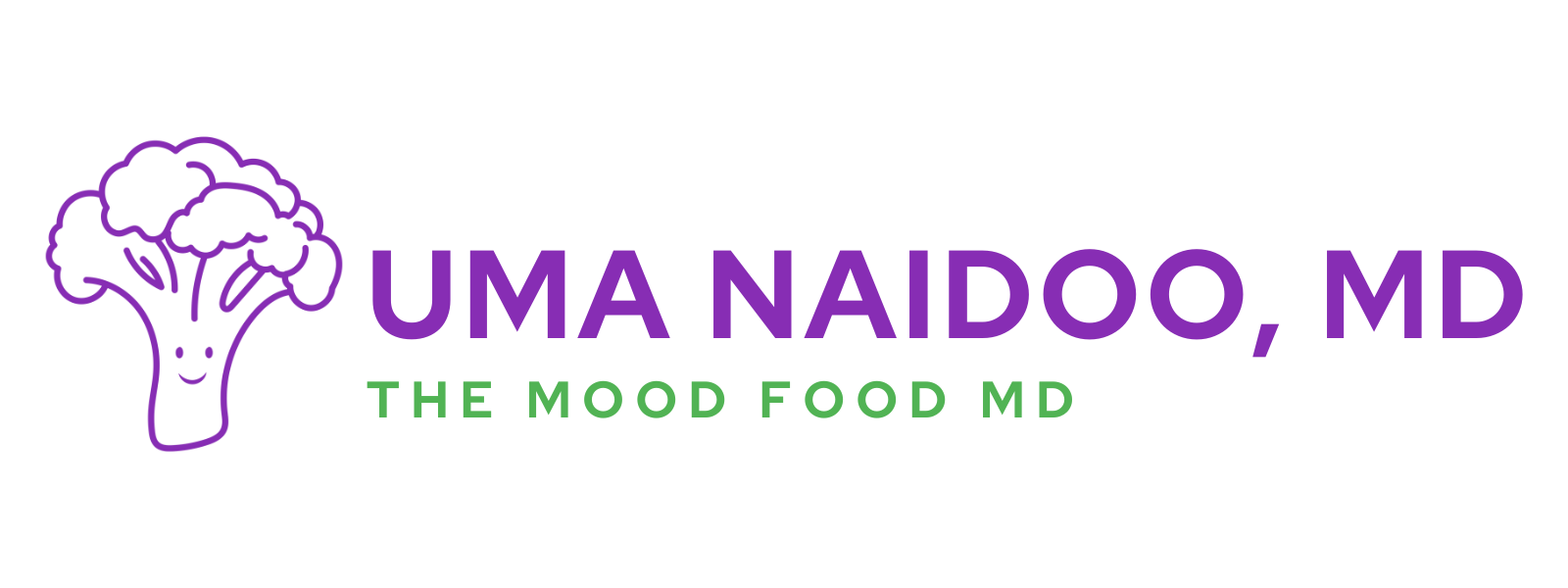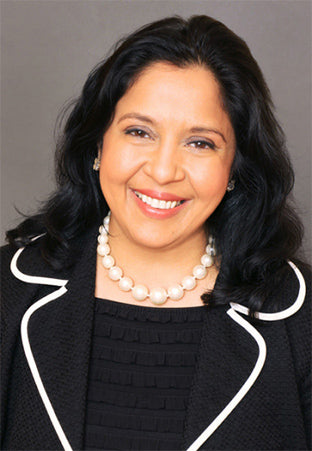Q&A with nutritional psychiatrist Uma Naidoo, author of ‘This is Your Brain on Food’
Some connections between stomach and brain are, frankly, no-brainers. Everyone understands the concepts of a nervous stomach or comfort food. But nutritional psychiatrist Uma Naidoo seeks to explain many more complex connections between what we eat and our mental health in her new book “This is Your Brain on Food: An Indispensable Guide to the Surprising Foods that Fight Depression, PTSD, ADHD, Anxiety, OCD and More.”
In addition to deep-dives into how what we eat can help prevent, treat — or worsen — many conditions, the book includes recipes and menus to help with everything from depression to bipolar disorder. Naidoo is director of nutritional and lifestyle psychiatry at Massachusetts General Hospital. She is also a trained chef who attended Cambridge School of Culinary Arts while also practicing medicine.
Q. Nutritional psychiatry may be a new concept for people. How do you define it?
A. It is really using food and nutrients to improve mental health. Some people may be on medications, both for psychiatric or medical reasons, but they may want to also pursue an additional way to feel better. I find that many individuals I call subsyndromal, meaning they don’t quite have syndrome by definition, still have symptoms. They may have anxiety and are functioning, but they’re not feeling well. Using nutritional strategies has been very effective
Q. What brought you to the connection between food and mental health?
A. I had always just had a real curiosity about nutrition. I’ve always sort of had a holistic approach to medicine. There’s this very well-known gap in medical school around nutrition. So doctors are expected to talk to patients about what to do for hypertension and how to eat for high cholesterol, but we are really not well trained in that.
Q. You chose to continue exploring that connection in culinary school.
A. My purpose for going was not necessarily to improve my practice. I had this ongoing passion for food. Julia Child is my food hero, whom I used to watch when I was studying for my board exams. And I felt, at the time that I was doing this work, if I could also provide recipes to my patients, but also just for my own pleasure and enjoyment, and understand food better, that was just important to me.
Q. You note in several chapters that the standard Western diet is problematic for mental health. Why is that?
A. The Western diet, or the standard American diet, is unfortunately not heavy on fruits, vegetables, whole grains, beans, legumes, nuts, and seeds. It’s really more focused on processed foods, convenience foods, easy to prepare foods, unhealthy ingredients, as well as high sodium, a lot of added sugar. It is those things that work against us.
Q. How so?
A. The truth is there’s this anatomical, physiological, and biochemical connection. And the anatomical connection is the vagus nerve that is connecting your gut directly to your brain. I talk about it like a super-highway or a two-way communication. If you’re eating good food, the good gut bacteria do well, and you maintain a healthier state. If you’re eating poor foods, the bad bacteria have a party. They kind of are raging to go and they’re getting fed. They disrupt your gut. And by disrupting your gut, the wrong chemicals get formed. And those get communicated to your brain as well.
Q. Does it take big dietary changes to begin seeing improvements in mental health?
A. The straightforward answer is no. But I would add a few caveats to that. The first one is, science has shown us that your gut bacteria can begin to change within 24 hours. So with every good meal you eat, you are directly starting to impact your gut microbiome. The physical and emotional effect takes longer. So the way that I like to unpack it for people is very simply, you can start to make small changes. And in fact, I think those are much easier for my patients.
Q. It’s probably not surprising that caffeine, alcohol, or even gluten can worsen anxiety for some people. It may be surprising that something as simple as fiber can be calming.
A. Doctors can say eat fiber, eat your fruits and vegetables, have a salad every day and people roll their eyes. They’re like, “I know I’m supposed to do that.” But here’s the thing: When people understand that your fiber comes from fruit, vegetables, beans, nuts, seeds, and legumes, and that fiber really helps the gut produce the good substances that help you in your body, then you understand the reason that we’re talking about salads. And then I tell them how much of it they can eat because they can eat a ton of greens, a ton of vegetables, meaning they can have a very fulfilling, delicious, but also healthy lunch or dinner. It doesn’t have to be boring. The number of vitamins and minerals, and other ingredients that you get in that meal are so numerable that we really can’t count them.
Q. What are the things people could be working into their diets now that are beneficial to mental health?
A. I’m loving all the fresh produce that are now available to us from local farms. I’m very excited about the different greens that come into season. I actually also love herbs. I love adding basil to salads. I like cauliflower because I know that the ingredients are super healthy for the gut-brain axis because they have sulforaphanes. But cauliflower to me is also a blank slate. It’s a chef’s dream because you can do so many things with it. Tomatoes are just delicious right now. They’re rich in lycopene. So, that’s good for you. One of the challenges I have with my patients is how many different colors of fruits and vegetables can you eat in a day? And can you up your game each day?



